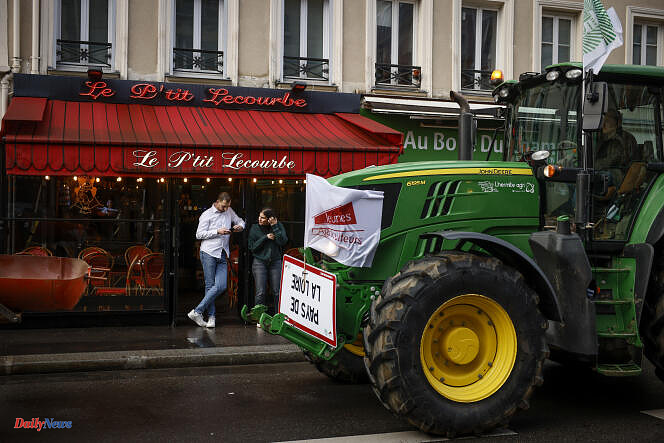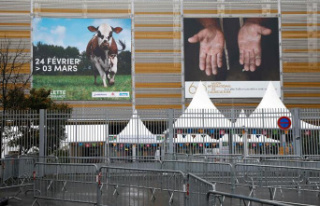The main bosses of mass distribution called for extending EGalim's obligations "to catering players, as well as industrial wholesalers", Friday in a joint letter addressed to the FNSEA and consulted by the France-Presse agency ( AFP). This letter comes as many farmers demonstrated in the streets of Paris on Friday and in the regions, and after the failure of the Elysée to organize a debate with the FNSEA, on the eve of the opening of the Salon de agriculture.
The crisis in the agricultural world “forces us”, but mass distribution “cannot do everything”, write in this letter Michel-Edouard Leclerc (E.Leclerc), Alexandre Bompard (Carrefour), Thierry Cotillard (Les Mousquetaires-Intermarché), Dominique Schelcher (Système U), Philippe Brochard (Auchan), Jean-Charles Naouri (Casino, Monoprix) and Ludovic Chatelais (Cora). Between them, they represent more than 88% of the French food distribution market, according to reference data from panelist Kantar.
The government plans to present “by the summer” a new law to “strengthen the EGalim system” which should allow better remuneration for farmers within the framework of negotiations between distributors and agro-industrial suppliers.
These leaders, some of whom are often in the media, ask that the question of agricultural income not be treated “without understanding other outlets”. Their sector “represents less than half of the outlets for French farms”. For them, it is “high time to extend EGalim’s obligations to players in out-of-home catering [restaurants and collective catering], as well as industrial wholesalers”.
“Charter of good practices”
The day before, Thierry Cotillard had regretted to the AFP that local authorities were exempting themselves from certain provisions of the EGalim laws. The latter provided “that communities must source 20% of organic or local products for collective catering, we are very far from this,” he observed.
Large-scale distribution also demands that "industrialists, under penalty of sanctions, be required to conduct their negotiations" with farmers before those with distributors, and that the price paid to farmers be known in this negotiation.
The sector still suggests “working on a charter of good practices” to prevent the use of purchasing and service centers based in Europe from being detrimental to farmers’ income.
“In other sectors, aeronautics, chemicals, Euro-power plants exist” and are “incredible tools” against “the price increases of multinationals” like Coca-Cola or Nestlé, explained Thierry Cotillard the day before, proposing to exclude “products with a strong agricultural component” from these negotiations.












